Cochlear Implant
What is a Cochlear Implant?
A Cochlear Implant is a device that is placed into the inner ear. It requires a surgery that takes about 2-3 hours, and you may go home the same day.
The device has several parts: a microphone, speech processor, transmitter, and electrodes. The speech processor is worn externally, while the receiver/stimulator is placed underneath the scalp. The receiver/stimulator has an electrode coil that is placed into the cochlea (the organ of hearing) during surgery.
Once the device is activated, sound is picked up by a microphone and sent to the speech processor, which analyzes the sound and converts into digital signals, which are sent to the transmitter. The transmitter then sends a code across the skin to the internal implant, which converts the code into digital signals. These signals are sent to electrodes to stimulate the remaining nerve fibers in the auditory nerve. The signals are recognized by the brain as sound signals, and produce hearing.
All of these processes take place within milliseconds, so there is no detectable delay between the production of sound and its reception in the listener’s brain.
Are You a Candidate for Cochlear Implant?
The FDA has different candidacy requirements for adults versus children.
Adults:
-Severe-to-profound, bilateral sensorineural hearing loss (greater than or equal to 70 dB HL).
-Deafness in adults who were previously hearing with normal speech before the onset of severe or profound hearing loss.
-Limited benefit from appropriately fitted hearing aid
Children:
-Profound, bilateral nerve hearing loss
-Use of appropriately fitted hearing aids for at least 6 months in children 2 through 17 years of age, or at least 3 months in children 12 through 23 months of age.
-Little or no benefit from appropriately fitted hearing aids.
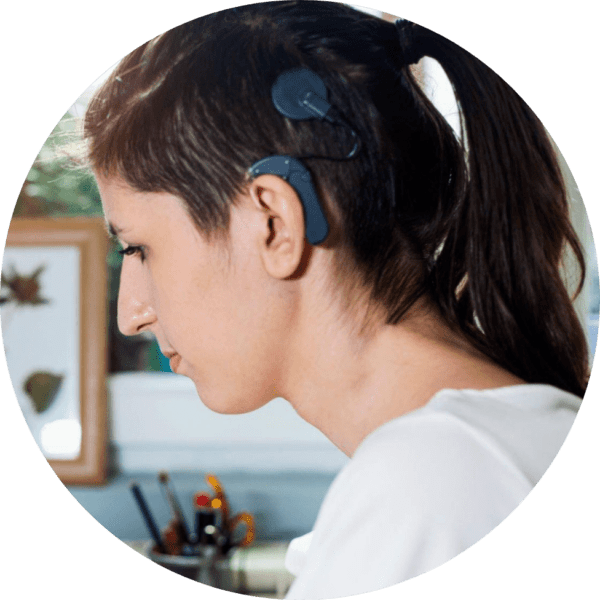
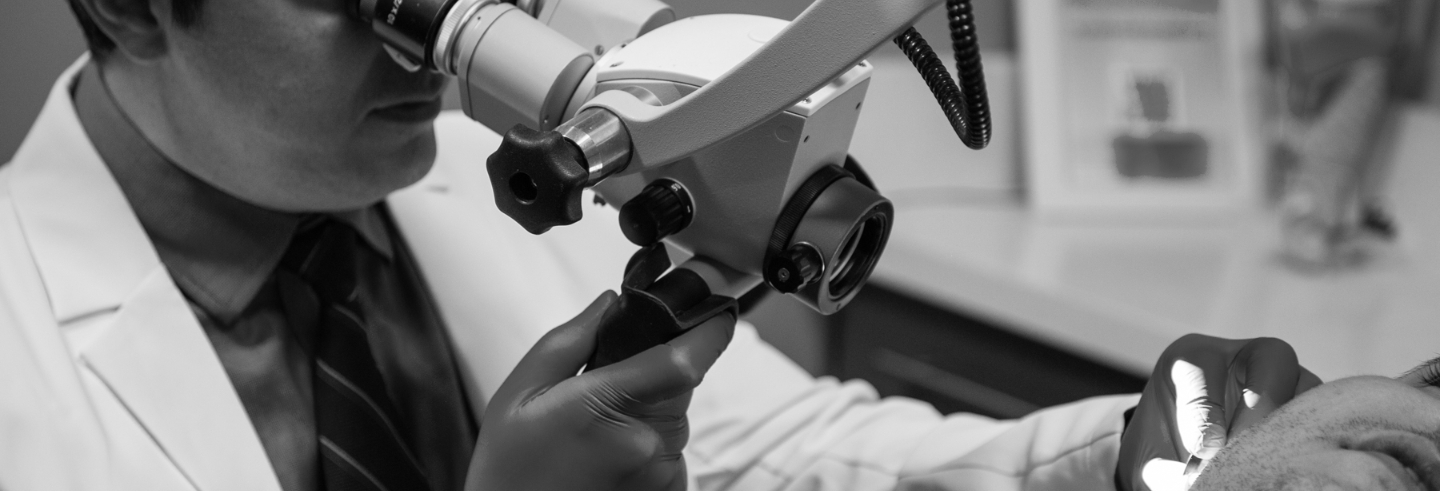
What will be my hearing after having a cochlear implant?
Cochlear implants cannot restore natural hearing, but they can provide excellent hearing and understanding of speech. In recent clinic trials in adults, average sentence understanding was 80% after 3 months and 90% after six months of use.
The majority of individuals who receive cochlear implants report better ability to communicate in challenging situations, when there is significant background noise.
What happens during cochlear implant surgery?
Cochlear implant surgery takes place in a hospital or clinic. The surgery lasts about two hours. Patients are given medication (general anesthesia) so that they are asleep during the procedure.
The patient is discharged after several hours of observation and can go home to rest. Overall hearing will be different on the side of the implant right after surgery — the device will be programmed a few weeks later, allowing time to for the incisions to heal. During this time, you will not be able to use a hearing aid in the ear that had surgery.
Small incision behind the ear
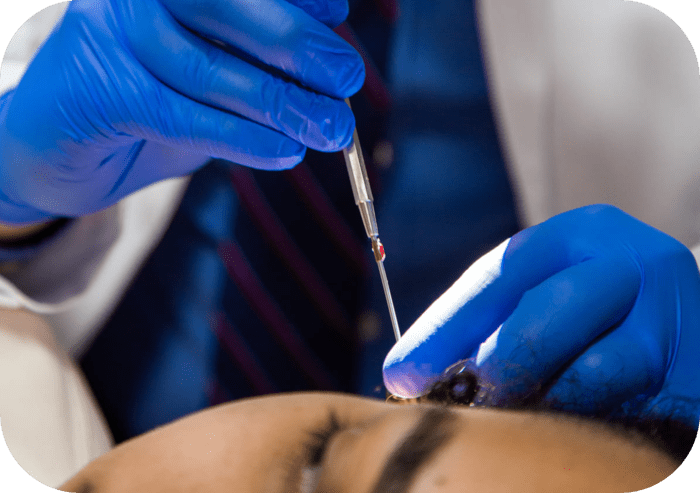
The surgeon makes a small incision behind the ear and then creates an opening in the mastoid bone to guide the electrode to the cochlea.
Implant electrodes are placed inside the cochlea
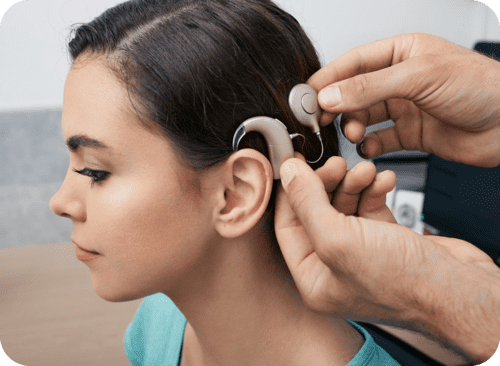
The implant electrodes are placed inside the cochlea.
Surgeon places an internal processor
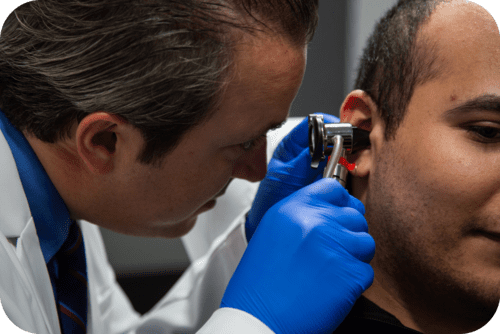
The surgeon places an internal processor in a pocket between the muscle and bone behind the ear. The internal processor receives information from an external speech processor that will be worn outside the skin.
The incisions are closed

The incisions are then closed, and the patient is moved into the recovery area and watched closely as he or she recovers from the anesthesia.
How soon after the surgery will I be able to hear again?
The cochlear implant is activated approximately one month after surgery. This is done in the office and does not require another procedure.
Learning to hear with a cochlear implant is like learning a new language. Most adults take between one and three months before they can really appreciate the full benefits they receive from a cochlear implant. And, typically their hearing continues to improve over time as they continue to gain experience listening to sounds and speech.
For children, they really are learning a new language so it could take a long time and a lot of hard work to reach different milestones. In the weeks and months that follow your initial programming, you will return to your audiologist to further optimize your child’s hearing programs. Visits to your audiologist will continue over time until they are only necessary for annual check-ups or to take advantage of new technology developments
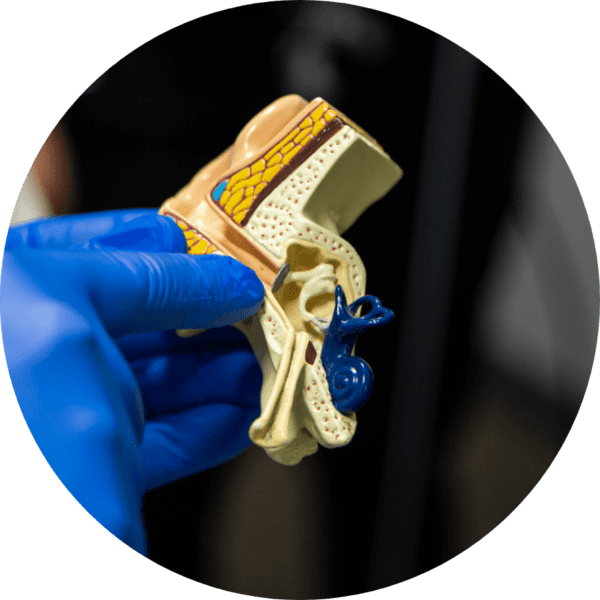
Typically their hearing continues to improve over time as they continue to gain experience listening to sounds and speech.
Still have questions regarding the condition?
While the information in this website may be helpful, it will never fully relate ear treatment to you. If you are facing any ear problem, please call our office and one of our representatives will talk to you.
CONTACT USTESTIMONIALS
What are patient say about us
Thanks to the expert care and skillful ear surgery I received, my life has been transformed. I can hear clearly again, and I’m forever grateful for the life-changing experience provided by the talented team
“Dr. Nazarian, who gave me back the wonderful gift of hearing!”
“Dr. Nazarian is the best! I was referred to Osborne Head & Neck Institute. They told me I needed to wait for a specialist. So I did. Dr. Nazarian got here and I saw him his first day. He has since fixed my ear problems. The entire staff has been great and would recommend to anyone.”